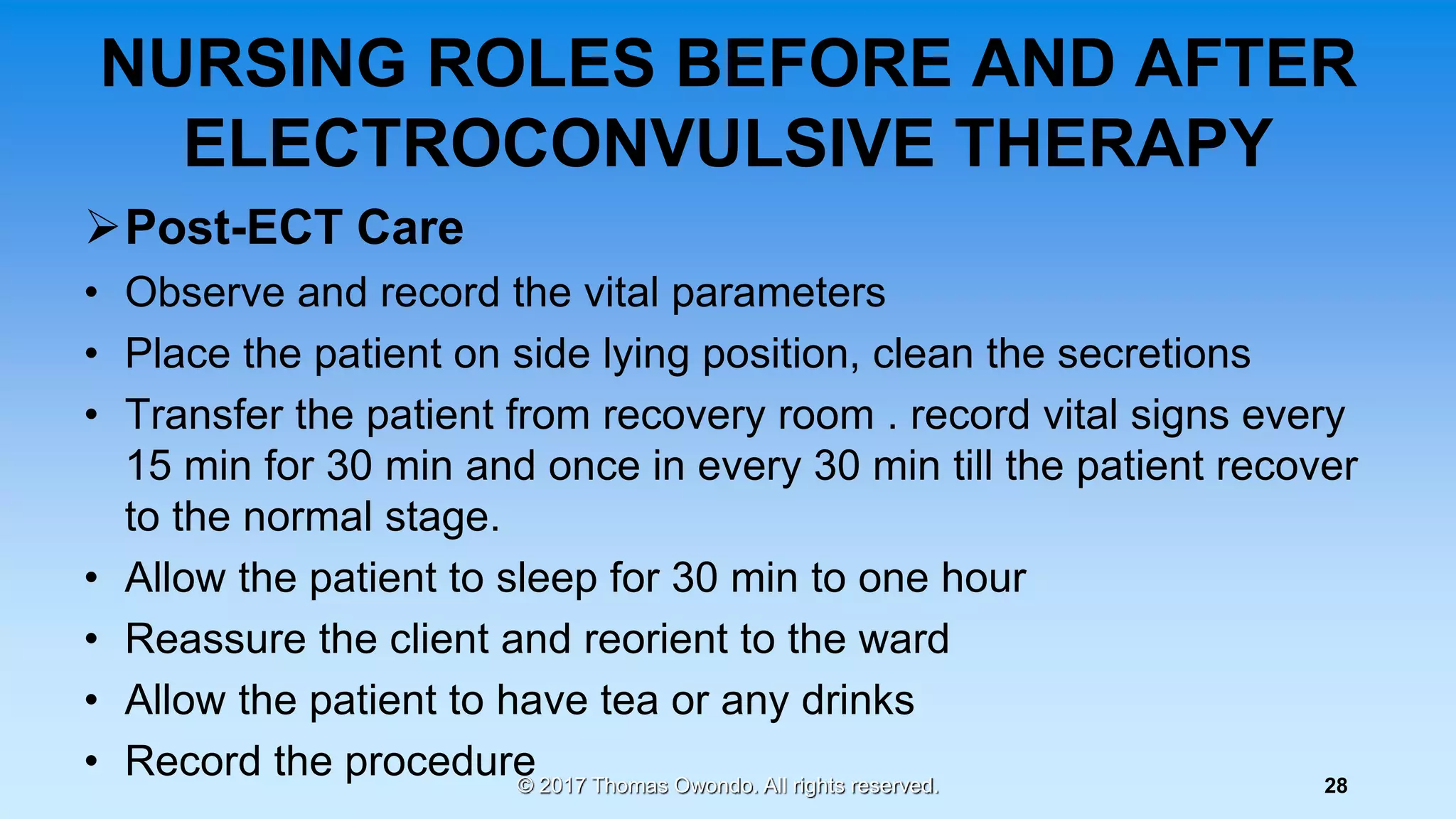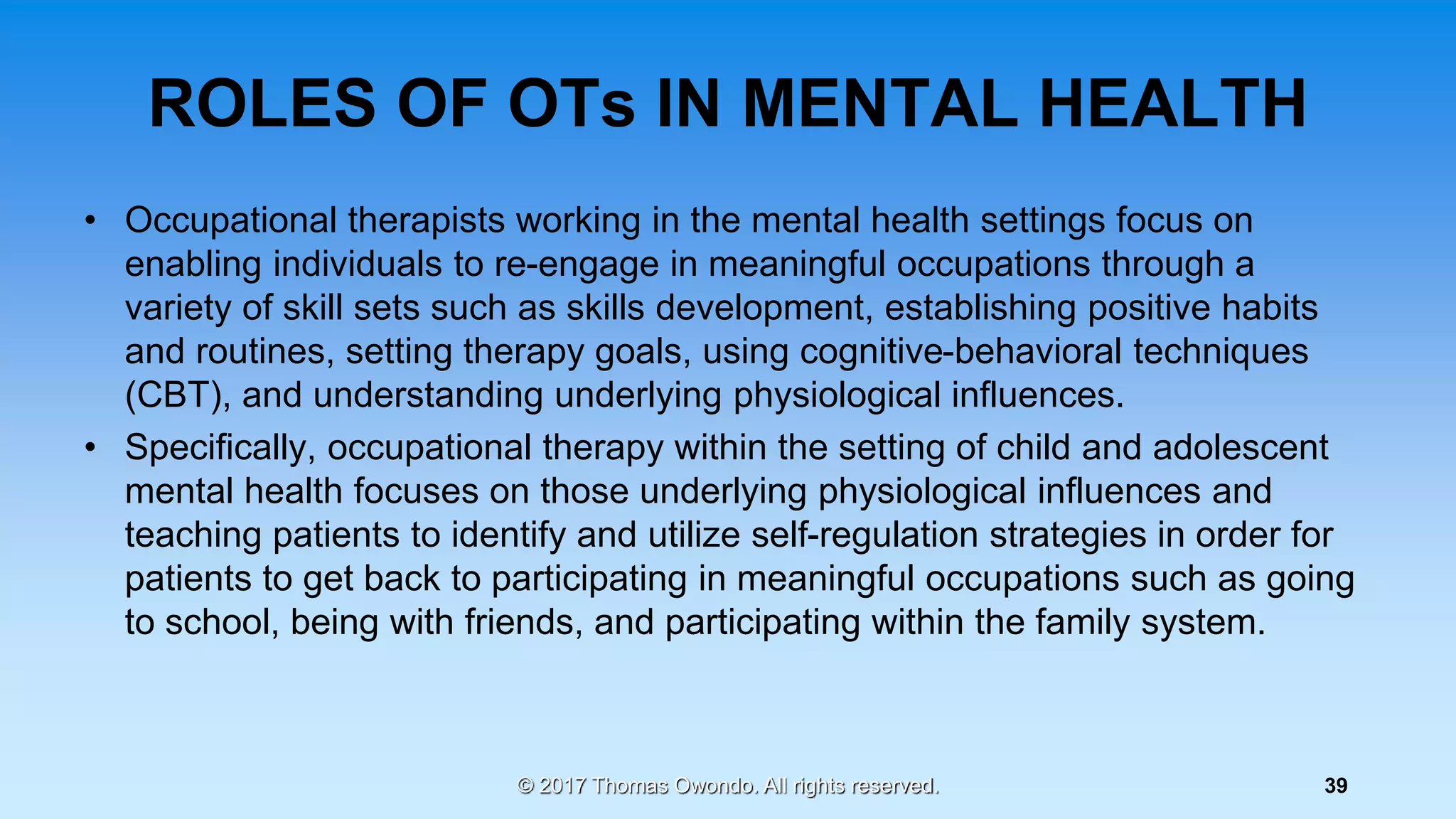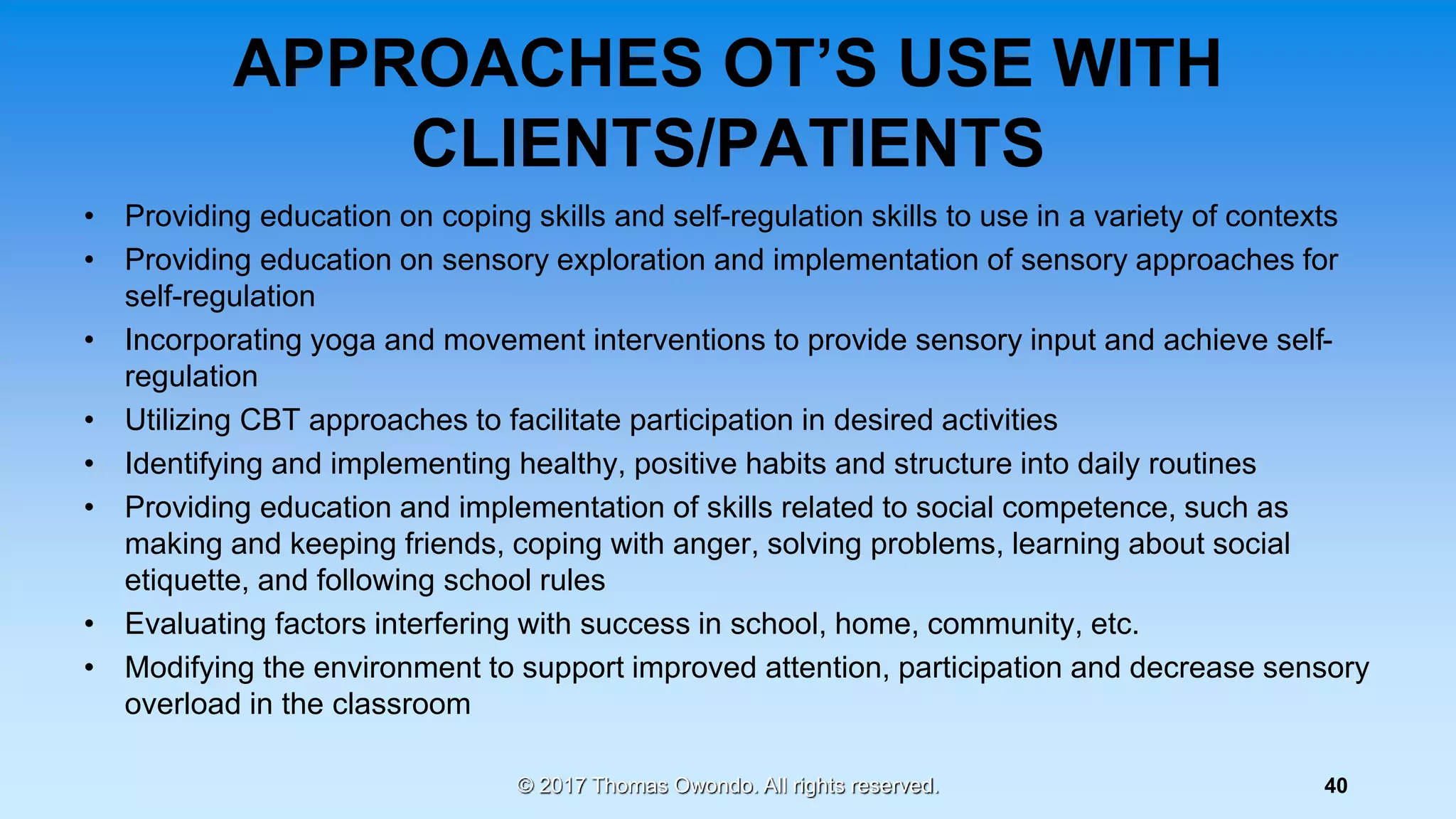The document outlines various therapeutic modalities in psychiatric nursing, emphasizing pharmacotherapy, psychotherapy, and electroconvulsive therapy (ECT) as key treatment methods for mental health disorders. It details the roles of mental health specialists and nurses in administering and managing these therapies, highlighting the importance of individualized care and monitoring. Additionally, it discusses the types of psychotherapy, their theoretical foundations, the procedures and equipment used in ECT, as well as occupational therapy's role in promoting independence and preventing disability in mental health settings.

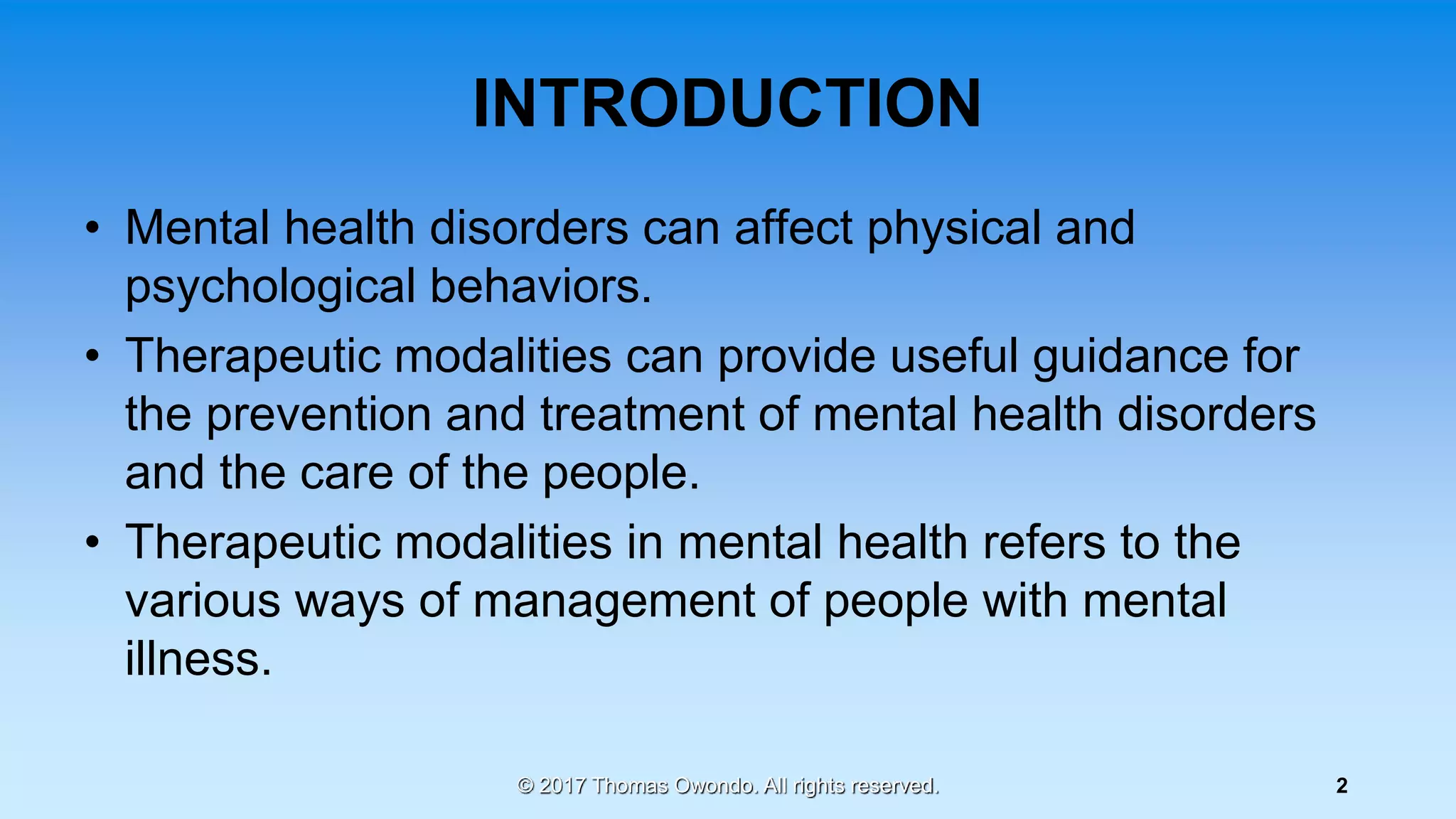
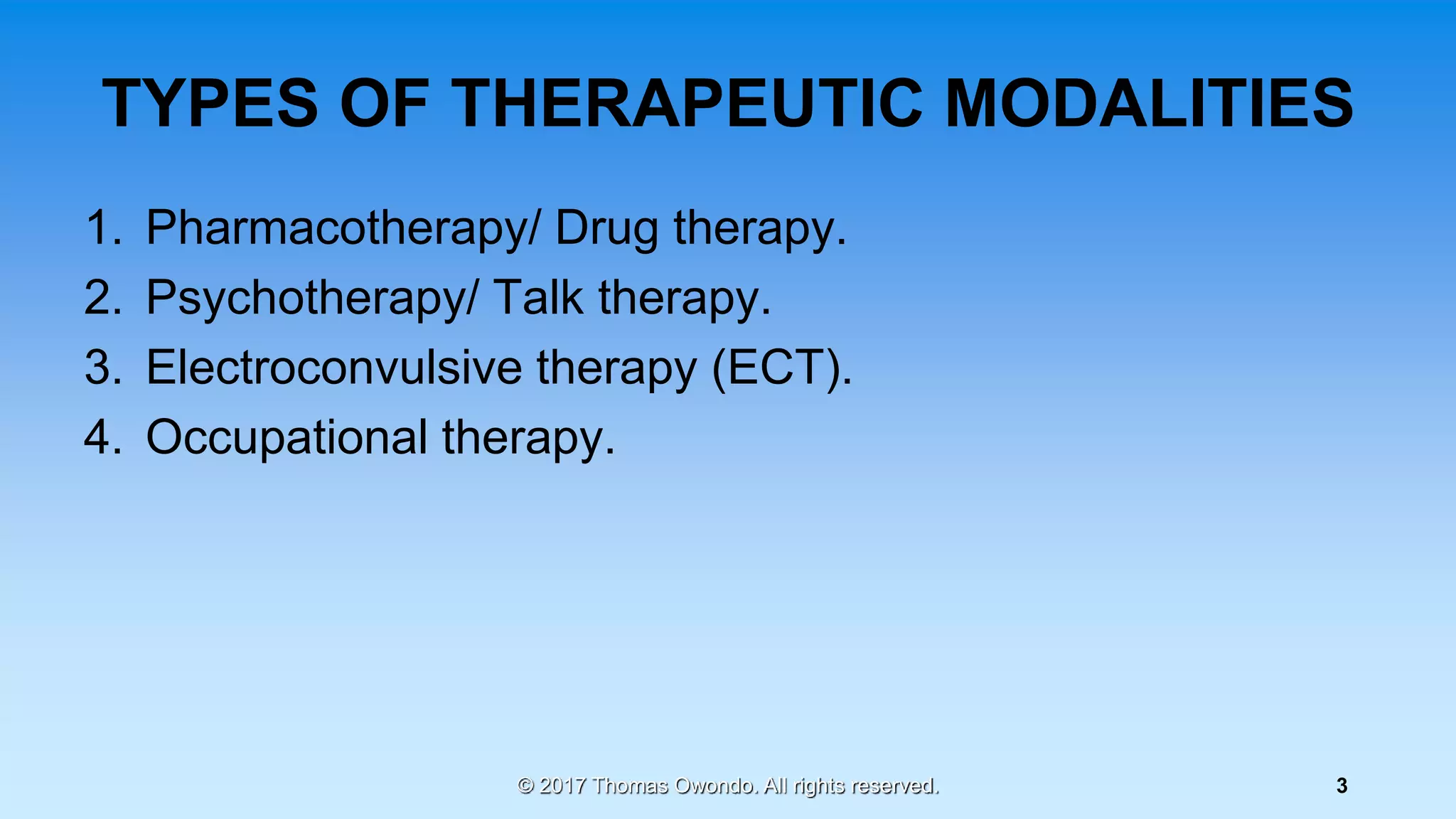

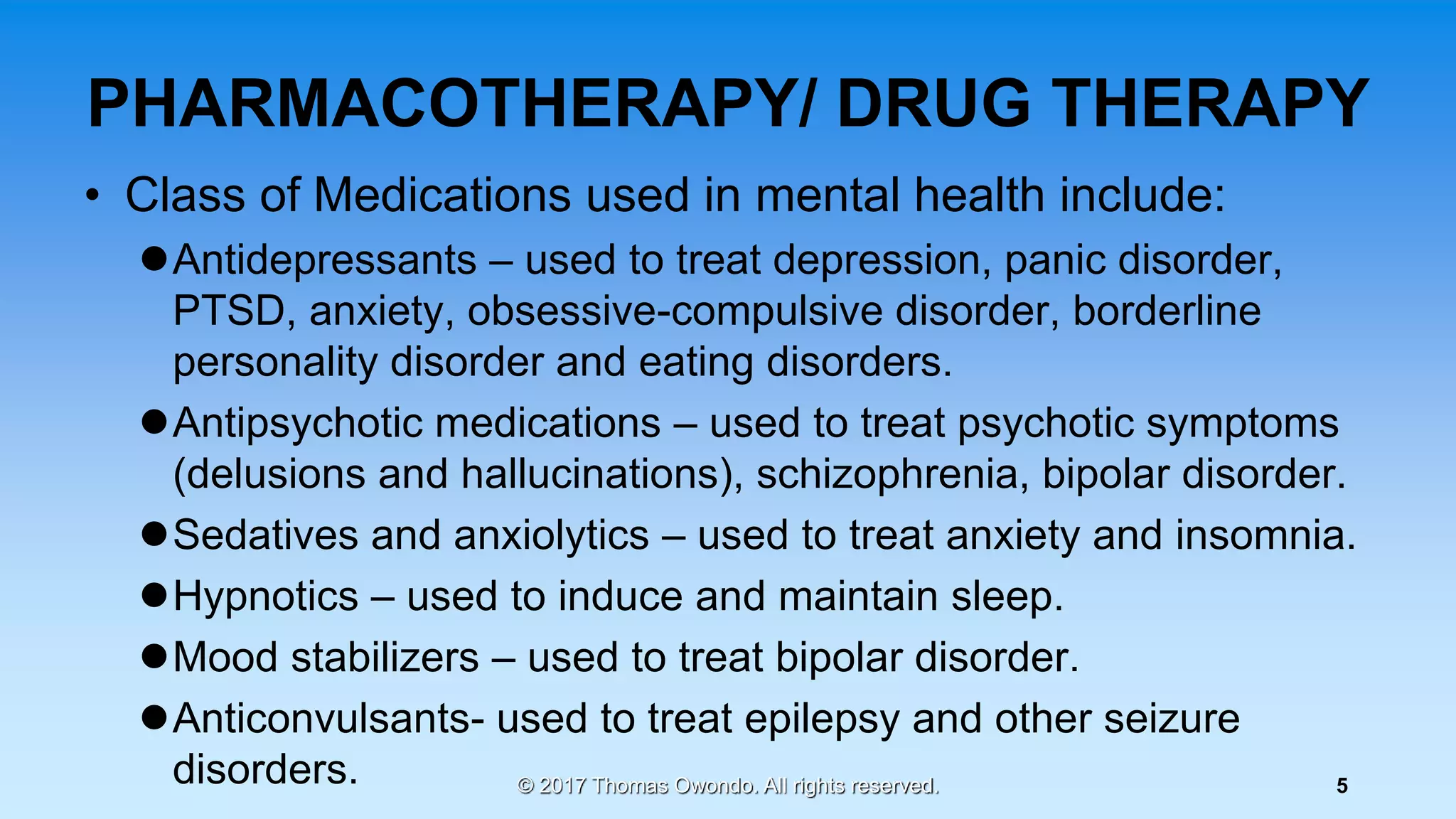
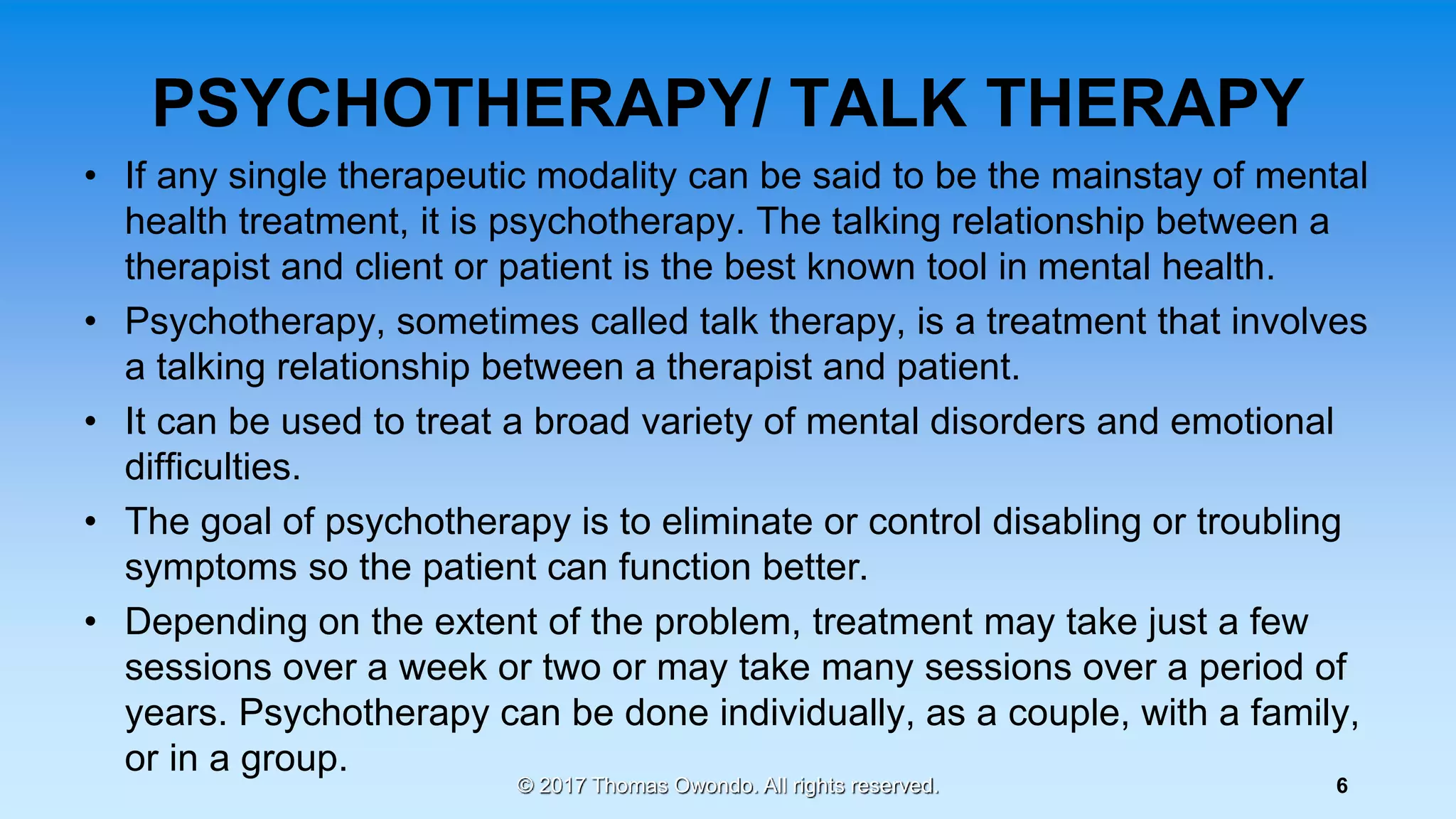
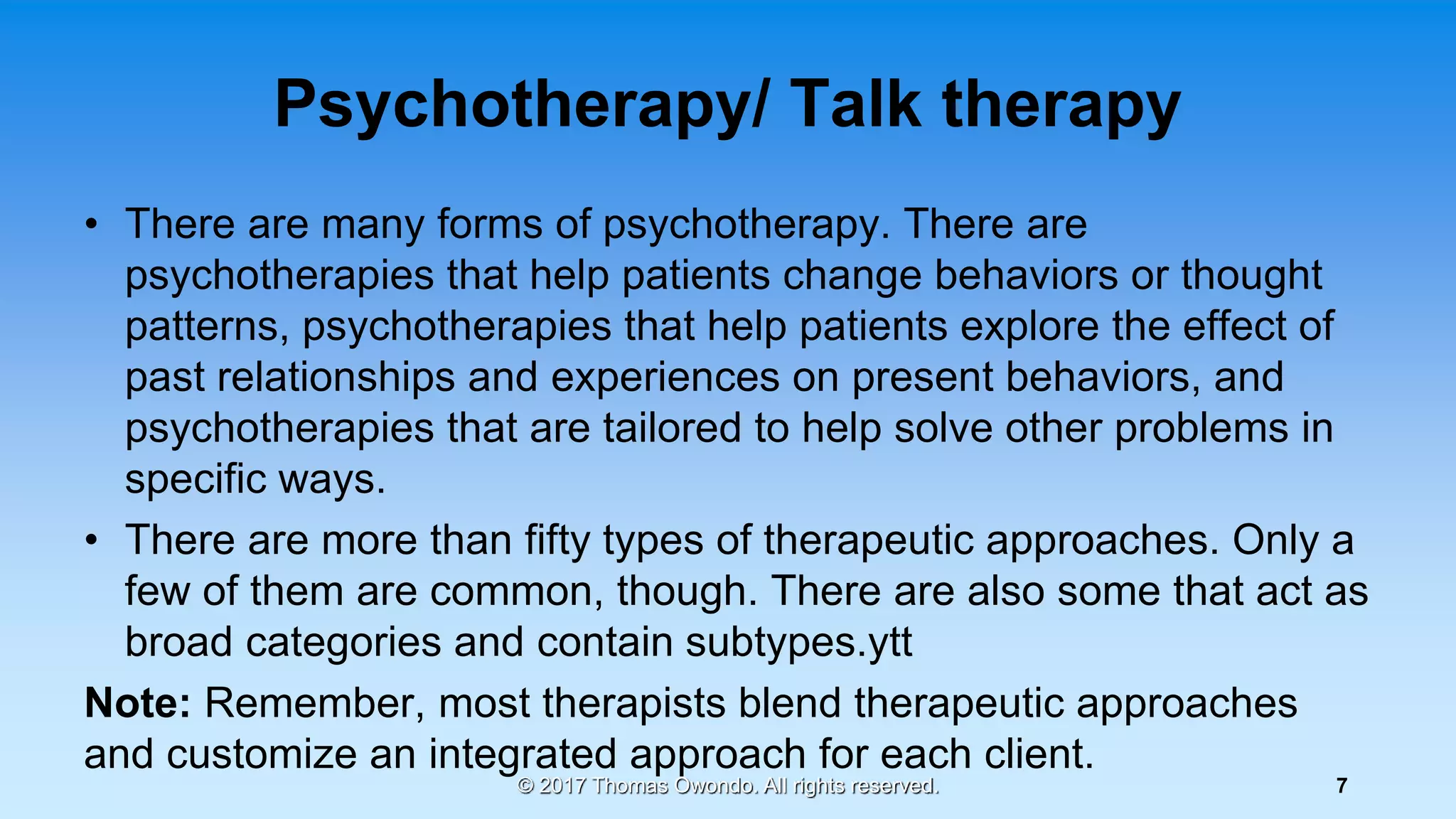

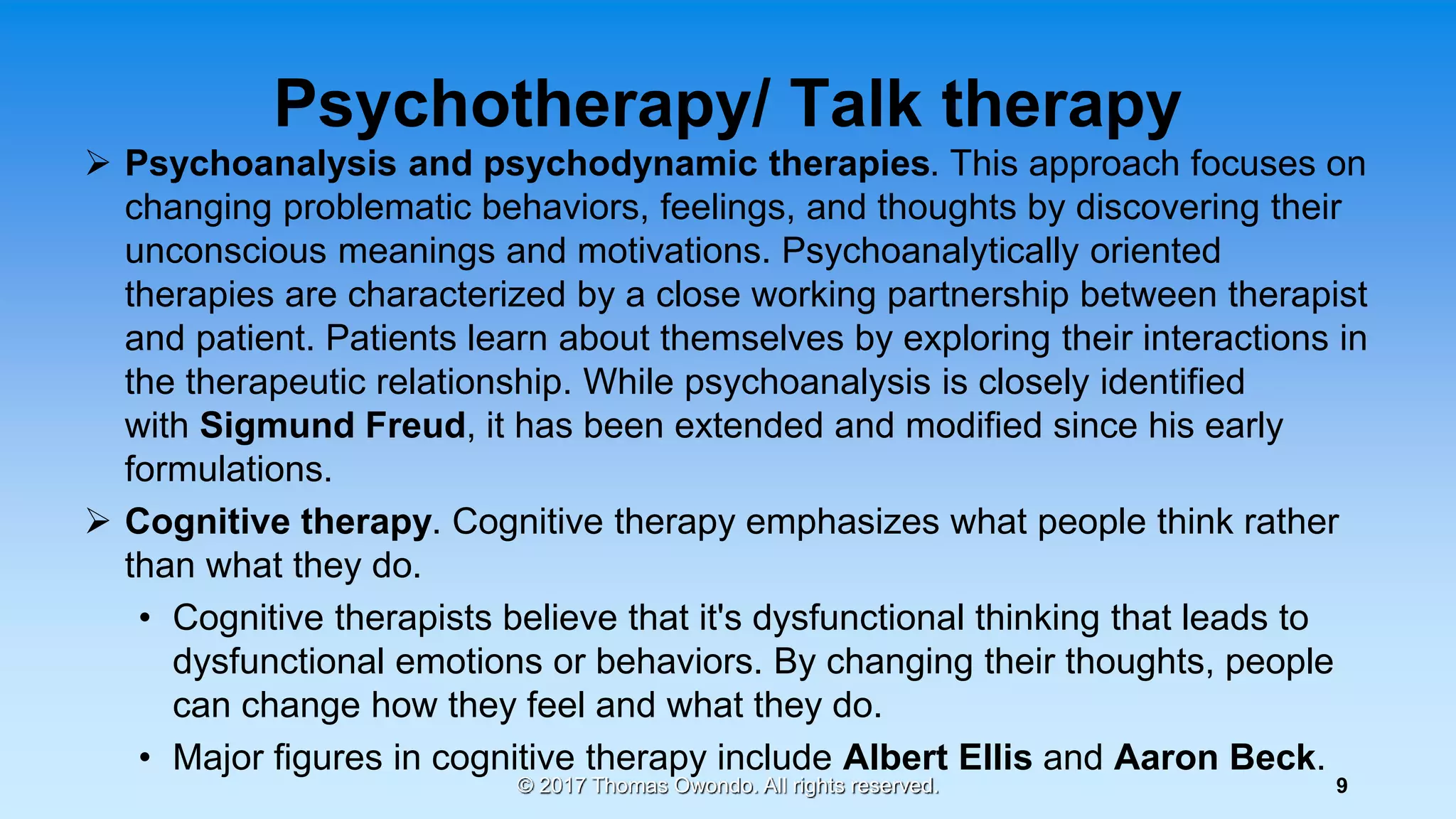
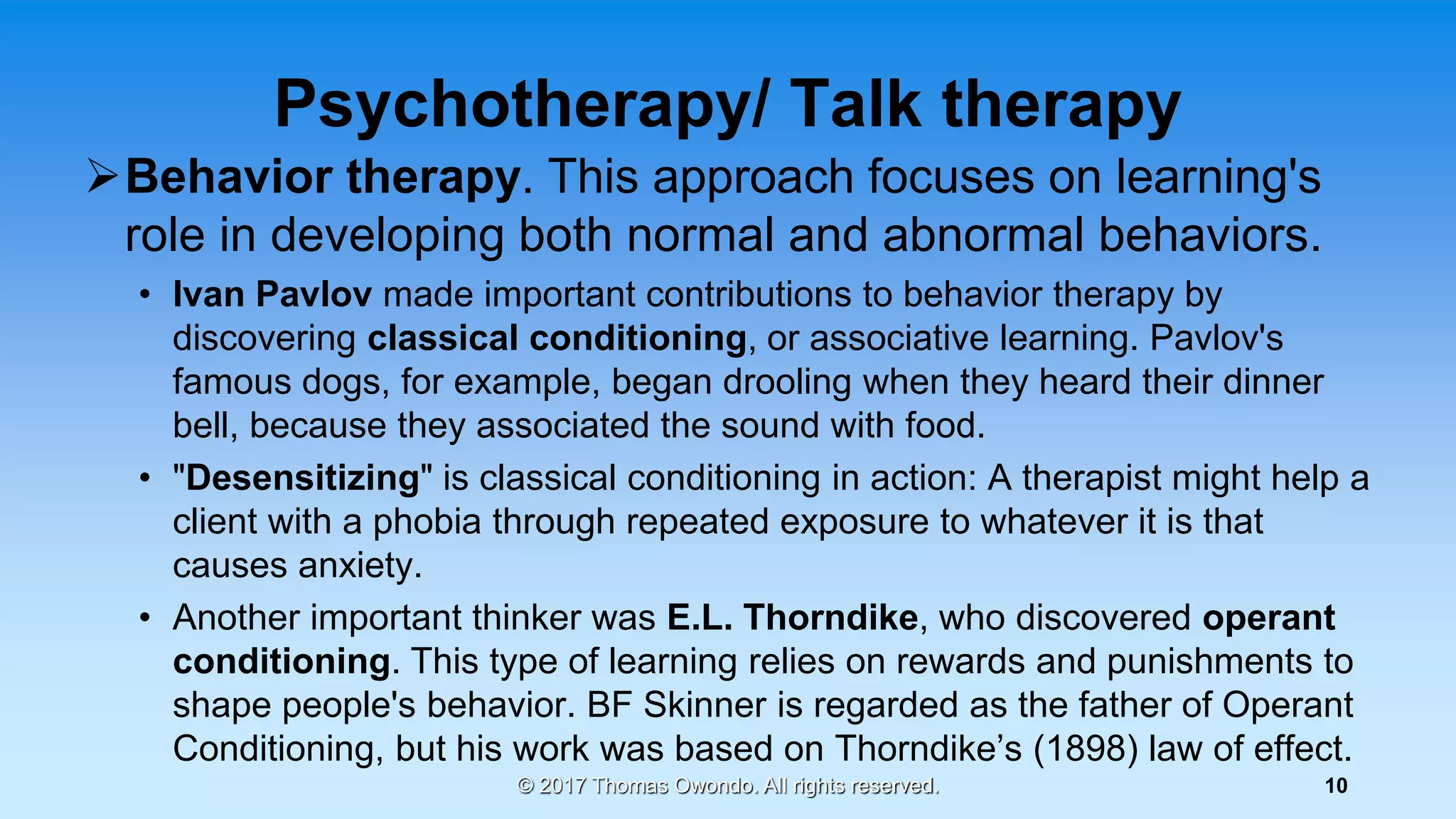


![Psychotherapy/ Talk therapy
• Examples of psychotherapy include;
Client-Centered Therapy [Person-Centered Therapy, PCT, CCT
or Rogerian Therapy] (Part of the Humanistic Category of
Therapy)
Cognitive or Cognitive Behavioral Therapy [CBT] (part of the
behavioral category)
Rational Emotive therapy
Behavioural therapy
© 2017 Thomas Owondo. All rights reserved. 13](https://image.slidesharecdn.com/therapeuticmodalitiesinmentalhealth-230204040134-90663d20/75/THERAPEUTIC-MODALITIES-IN-MENTAL-HEALTH-pptx-13-2048.jpg)














